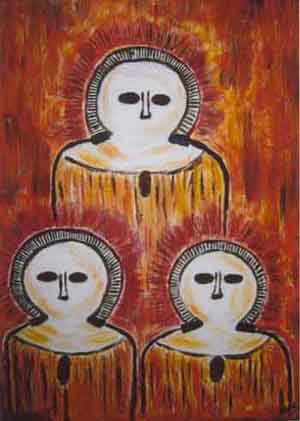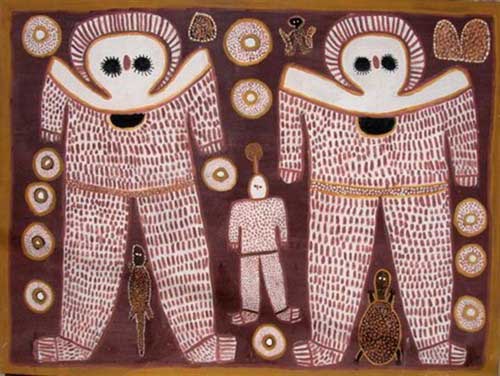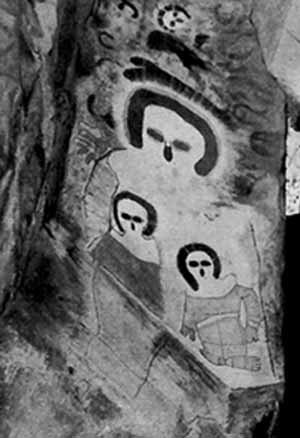Ancient Australian Aboriginal mythology suggests the rain and cloud spirits would descend from the sky to paint Wandjina figures on the cave walls. These paintings are believed to have been repainted and refreshed by the current oldest living descendant since the original prehistoric Aborigines. Wondjina believe that dream-time is cosmological time and the principal order of all things to exist in the universe. It is also interpreted that the paintings do not contain mouths otherwise it would continue to rain without relief.
Significant early cave paintings have been found in Kakadu, Australia. Ochre is a not an organic material, so carbon dating of these pictures is often impossible. Sometimes the approximate date, or at least, an epoch, can be surmised from the painting content, contextual artifacts, or organic material intentionally or inadvertently mixed with the inorganic ochre paint, including torch soot.
A red ochre painting discovered at the centre of the Arnhem Land plateau about two years ago depicts two emu-like birds with their necks outstretched. They have been identified by a paleontologist as depicting the megafauna species Genyornis. The giant birds were thought to have become extinct more than 40,000 years ago but this may suggest that they existed later than that.
The Whitsunday Islands are also home to a surprising number of cave paintings. The cave paintings by the sea-faring Ngaro people on Hook Island, Australia, are remarkable for their non-figurative, non-representational, or abstract content. Their significance is a mystery.





 wishlist(0)
wishlist(0)



